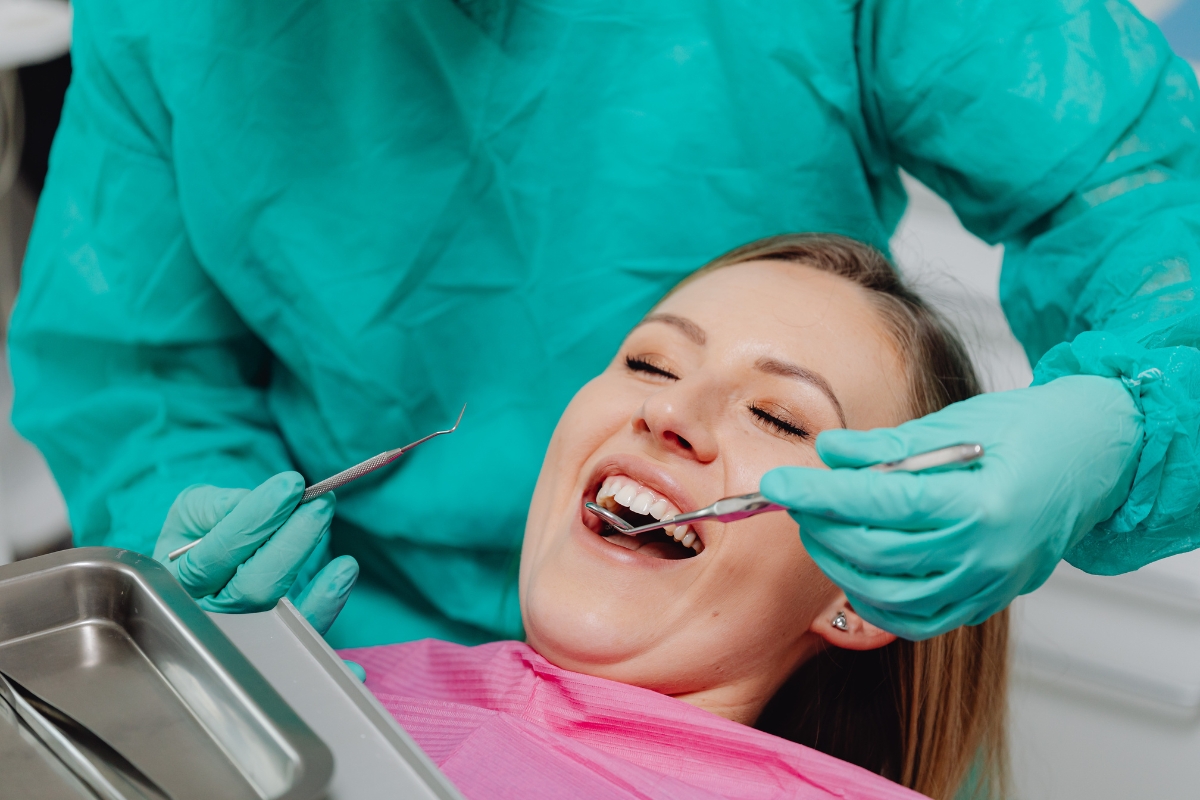
Throbbing pain strikes at midnight. Ice-cold water sets your tooth on fire. Suddenly, sharp jolts strike, and you lie in bed, awake and restless, afraid. When throbbing pain makes you wonder if this is just a cavity or something more dangerous, many believe minor decays are scary infections that necessitate immediate attention.
Quick judgment matters. Although some toothaches may indicate minor decay, others may indicate an infection spreading quickly. Knowing when to contact an emergency dentist helps avoid irreparable harm and endless agony. Recognizing the symptoms helps protect both your smile and your mental health.
What Tooth Pain Is Trying to Tell You
Toothache is a loud talker, described by some as dull pressure and others as piercing electricity. Every sensation could be telling a different story in regard to oral health. Location, duration, and intensity can show hidden causes. Sudden sharp stabs may mean nerve exposure, with a steady throbbing pain suggesting infection.
Many residents actually ignore the early warning signs until the pain is unbearable. Visiting the emergency dentist early saves teeth, preventing greater costs. Recognizing these sensations helps you act fast and get the right care in time.
When It’s Probably Just a Cavity
Recognizing Early Signs of Tooth Decay
- Sensitivity to sweets, cold, or heat implies damage to the enamel.
- Mild discomfort while chewing points to surface-level decay.
- Visible dark spots or tiny holes confirm developing cavities.
Why Early Treatment Matters
Untreated decay spreads deeper each day. Small holes soon reach sensitive nerves, and the pain grows stronger and persistent. A cavity that once needed a filling might later demand a root canal.
Quick diagnosis by an emergency dentist in Fitchburg prevents severe infection. Professional fillings restore strength and stop bacteria from spreading. Early action keeps your mouth healthy and your wallet safe. Regular checkups reveal problems before pain strikes, ensuring every tooth stays strong, functional, and pain-free longer.
When Pain Signals a True Dental Emergency
Symptoms That Need Immediate Attention
- Continuous throbbing pain that won’t seem to subside.
- Swelling or pressure extending into the jaw or ear.
- Fever, bleeding from the gums, or an offensive taste suggesting infection.
- Cracked, broken, or knocked out tooth after trauma.
Why Waiting Can Make Things Worse
Delaying treatment invites severe complications. Infection can easily reach the bone or bloodstream. Immediate help from an emergency dentist prevents abscesses and tissue damage. Ignoring signs risks permanent tooth loss. Severe pain should never wait.
A professional diagnosis ensures fast relief and effective care. Early visits reduce swelling, control infection, and preserve natural teeth. Always treat intense pain as an urgent alarm to protect long-term oral health and comfort.
At-Home Relief Until You See the Dentist
Rinse gently with warm salt water to eliminate bacteria and at the same time pacify your gum muscles. A cold compress can also be used to help manage the swelling and numb the pain even further. Avoid munching on tough foods on the tormented surface. Choose cold, gentle foods until the pain is gone.
Quick aid comes from over-the-counter medications, which temporarily relieve soreness. However, don’t ever stick an aspirin near the gum tissue. It’ll burn the soft tissue. Quick relief is important, but nothing substitutes for professional assistance.
If the pain persists, contact an emergency dentist in Fitchburg as soon as possible. It is only a temporary relief, and it cannot substitute actual assessment and therapy for a long-term advantage.
How Your Dentist Diagnoses the Cause
An emergency dentist finds the problem quickly using precise tools:
- Digital X-rays that show hidden decay or infection
- Gentle percussion testing to show nerve sensitivity
- Careful visual examinations to see the cracks or cavities that are not visible to the naked eye.
Each step ensures accuracy and comfort. Once diagnosed, treatment may be in the form of filling, root canal, or deep cleaning. Proper evaluation prevents unnecessary pain and future emergencies. Professional assessment means you receive exactly what your tooth needs-nothing more, nothing less. Early visits build trust and confidence.
Pain that persists won’t be ignored forever. Knowing the difference between a cavity and an emergency safeguards your health. Procrastination brings suffering and huge costs. Stop suffering when you can have help from a professional dentist once you notice discomfort or pain that doesn’t go away or worsens.
Expertise brings comfort back, strengthens, and puts your mind at ease. Are you not sure if your toothache is a cavity or an emergency? Book your exam with our dentist in Fitchburg today. Peace of mind begins with one visit.
